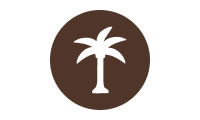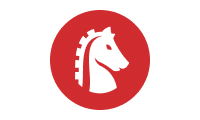Synthetic Drug Rehab
 Synthetic drugs, also known as “club drugs” or “party drugs,” are man-made versions of drugs that are marketed as delivering a safer high to the user. Also known as designer drugs, synthetic drugs are designed to mimic the effects of traditional controlled substances, while maintaining slightly different makeups to avoid being classified as illegal. These drugs are often produced in underground laboratories and contain an unknown mix of dangerous chemicals, making it hard for the user to consume an accurate dose. Synthetic drugs, which can be found for sale at gas stations, tobacco shops and the internet, are usually marketed under names such as “bath salts,” “potpourri,” “herbal incense,” “plant food,” and even “jewelry cleaner.” According to U.S. Customs and Border Protection most synthetic drugs, which first made their appearance in the United states in 2008, originate and are manufactured in foreign countries before being shipped into the U.S.
Synthetic drugs, also known as “club drugs” or “party drugs,” are man-made versions of drugs that are marketed as delivering a safer high to the user. Also known as designer drugs, synthetic drugs are designed to mimic the effects of traditional controlled substances, while maintaining slightly different makeups to avoid being classified as illegal. These drugs are often produced in underground laboratories and contain an unknown mix of dangerous chemicals, making it hard for the user to consume an accurate dose. Synthetic drugs, which can be found for sale at gas stations, tobacco shops and the internet, are usually marketed under names such as “bath salts,” “potpourri,” “herbal incense,” “plant food,” and even “jewelry cleaner.” According to U.S. Customs and Border Protection most synthetic drugs, which first made their appearance in the United states in 2008, originate and are manufactured in foreign countries before being shipped into the U.S.
Categories of Synthetic Drugs
All the synthetic drugs currently on the market fall into one of two main categories: synthetic cannabinoids and synthetic cathinones. Both of these categories are classified as new psychoactive substances (NPS), a group of unregulated mind-altering substances that intend to mirror the effects of illegal drugs which have newly become available or have been reintroduced on the market due to renewed popularity.
- Synthetic cannabinoids: also known as “fake weed” and “synthetic marijuana,” synthetic cannabinoids are designed to be safer and legal alternative to marijuana. Although similar to cannabis in their chemical, synthetic cannabinoids can have vastly different effects on the user when compared with natural cannabis. Synthetic cannabinoid chemicals are sprayed on dried, shredded plant material. They are also sold in liquid form for use in e-cigarettes or other methods of vaporization and are sold under various brand names including K2, Spice, Joker, Black Mamba, Kush, and Kronic.
- Synthetic cathinones: also known as "bath salts," synthetic cathinones are chemically produced to mimic the effects of stimulants. They are produced as cheap alternatives to more traditional stimulates such as cocaine, methamphetamine and molly or MDMA. Usually packaged in small foil wrappers, these chemicals are sold at online and drug paraphernalia stores disguised as “plant food,” “jewelry cleaner,” and “screen cleaner.” Synthetic cathinones usually take the form of white or brown crystal-like powder that is then swallowed, snorted, smoked, or injected by a user. Some of the brand names these chemicals are sold under include Bliss, Cloud Nine, Lunar Wave, Vanilla Sky, White Lightning.
Synthetic Drugs Addiction and Their Effects
Although synthetic drugs are designed to mimic the effects of their illegal and traditional counterparts, they usually have unpredictable and much stronger effects.
Synthetic cannabinoids bind with the same receptors targeted by THC in marijuana. However, synthetic cannabinoids tend to bind more strongly with the brain's receptors to yield unpredictable and dangerous results.in addition, unknown chemicals in the composition of synthetic cannabinoids make it harder to predict what effects may be felt by a user. Some of the effects and signs of of synthetic cannabinoids use include:
- Elevated mood and relaxation
- Heightened awareness
- Delusions and extreme anxiety
- Confusion and paranoia
- Hallucinations
- Rapid breathing and Vomiting
- Suicidal thoughts
- Violent behavior
High blood pressure, rapid heart rate, vomiting, suicidal thoughts and violent behavior are among the more acute dangers and side-effects of synthetic cannabinoid use.
Synthetic cathinones have been shown to affect the brain at least ten times stronger than cocaine. Among the effects and signs of use of synthetic cathinones are:
- Paranoia
- Hallucinations
- Increased friendliness
- Increased sex drive
- Panic attacks
- Excited delirium
- Extreme agitation or violent behavior
Some of the acute risks of synthetic cathinones use include rapid heart rate, increased blood pressure, chest pain and dehydration, which can lead to muscle loss and kidney failure in some cases. Individuals who use the drug intravenously or snort it are at a higher risk of suffering acute side-effects and even death.
Synthetic Drug Addiction and Detox
With over 150 different kinds of synthetic cannabinoids and cathinones on the market, emergency rooms across the U.S. have seen a surge of visits from individuals suffering from acute side-effects of synthetic drugs. According to the American Association of Poison Control Centers (AAPCC), poison control centers around the country received 7,779 calls about synthetic cannabinoid and 520 calls regarding exposure to bath salts in 2015. In addition to being dangerous, frequent use of these substances can be addictive and cause withdrawal symptoms once use is ceased.
Synthetic cannabinoids withdrawal symptoms:
- headaches
- anxiety
- depression
- irritability
Synthetic cathinones withdrawal symptoms:
- depression
- anxiety
- tremors
- problems sleeping
- paranoia
Although not necessary when detoxing from synthetic drugs, some individuals may find it helpful to have a medically facilitated detox depending on a case by case basis. There are currently no medications designed to help with synthetic drug withdrawals. On average, the detox period from synthetic drugs can last 5-7 days, however, this can depend on factors such as frequency of use, type and method of use, as well as other co-occurring disorders and addictions an individual may have.
Synthetic Drug Addiction Treatment Option
Due to the fact that there are no specific drugs to treat the short-lived withdrawal symptoms from synthetic drugs, behavioral therapies are favorable treatment options when helping individuals combating synthetic substance abuse problems. Therapy such as cognitive-behavioral therapy, which helps individuals understand the thoughts and feelings that motivate their substance abuse, as well as motivational incentive therapy have proven helpful.
Residential Treatment
As part of a residential treatment program, individuals can benefit from intensive and comprehensive treatment plan with round the clock access to medical and therapeutic personnel. An added benefit of residential programs is that they provide a safe environment away from temptation and everyday life distractions, where an individual can focus solely on their recovery. Residential programs also offer self-fulfilling programs such as sports, excursive and yoga to help channel an individual's excess energy and build better habits for long-term recovery.
Outpatient Treatment
For individuals who cannot take time away from work and other responsibilities to immerse in a comprehensive residential program, outpatient treatment is a more fitting option. This form of treatment is also a great resource for those who have completed a residential treatment program and wish to continue treatment in an outpatient setting.










